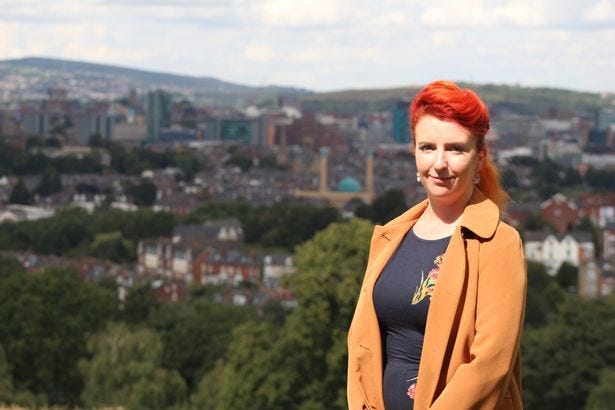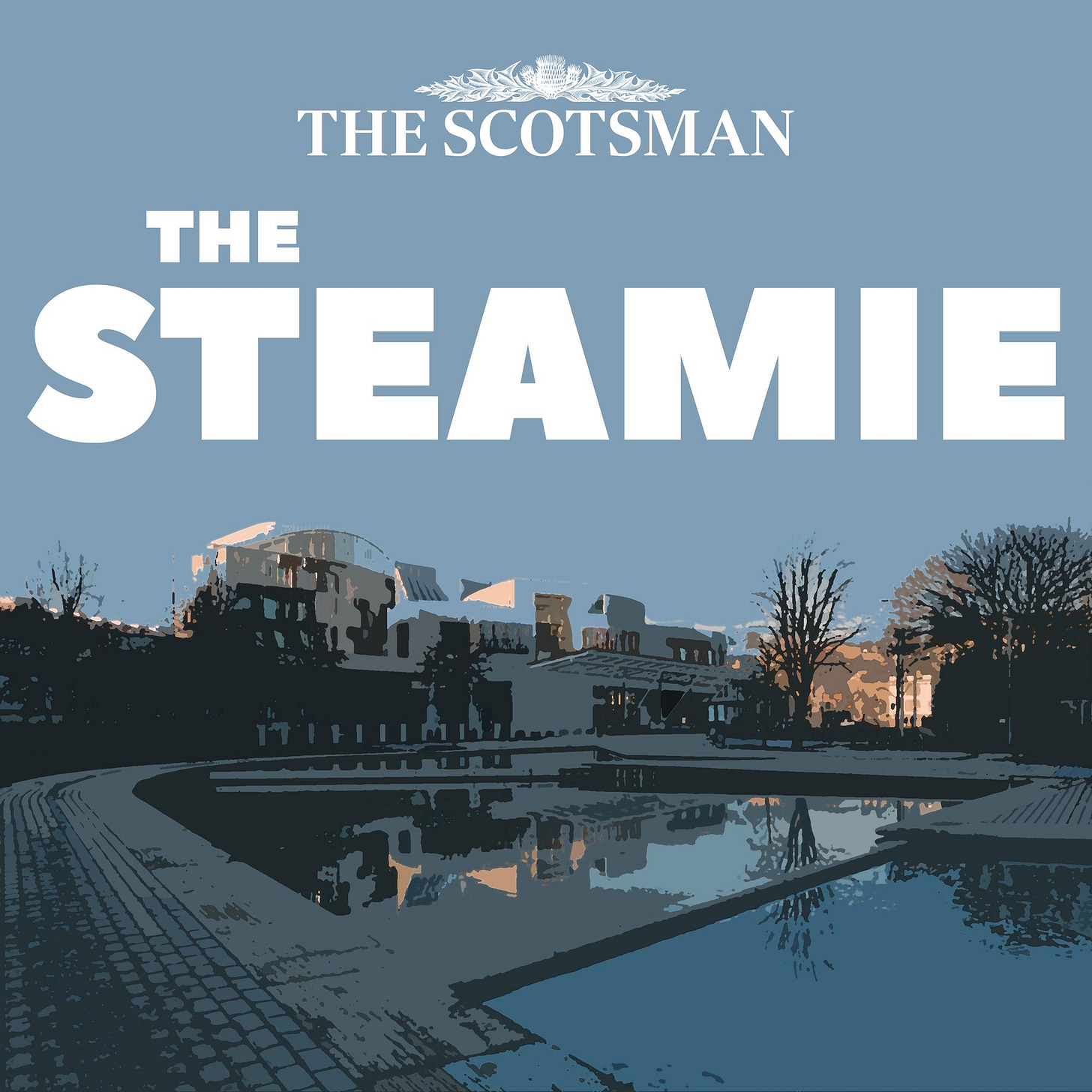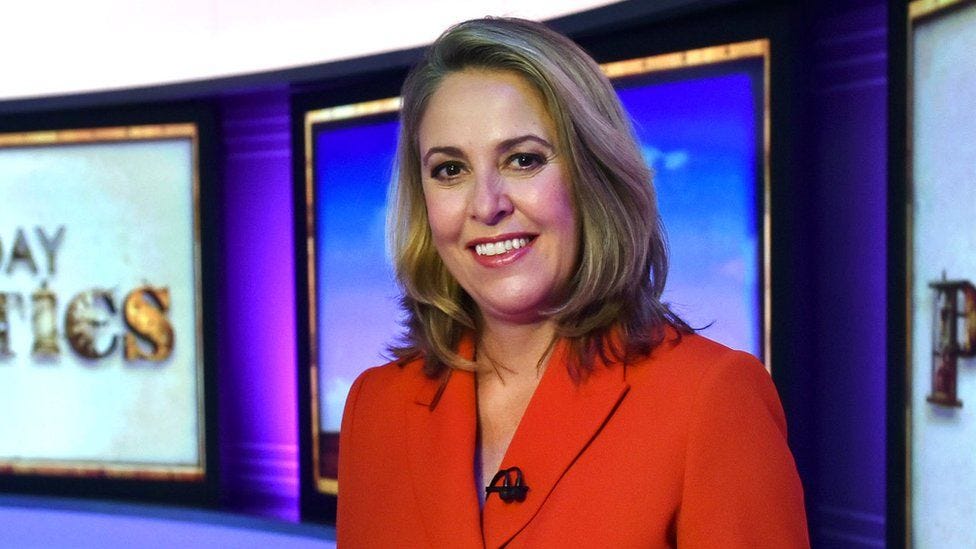🚍 The Northern bus crisis: a special report from The Northern Agenda
🏴 And The Steamie looks at the hounding of former BBC Scotland editor Sarah Smith
The headlines, quite rightly so, have been dominated by world politics in recent days, but if you wanted to also look at the political issues closer to home, Laudable offers interesting and educational takes from outside of the Westminster bubble.
Whether it’s The Northern Agenda or The Steamie, our podcasts provide a digest of the stories affecting our local communities, speaking to the voices that matter.
In this week’s newsletter, you’ll hear about a special report from The Northern Agenda on the state of buses across the region, speaking to those who run and use the services.
And The Steamie looks at the abuse handed out to former BBC Scotland Editor Sarah Smith, who said that she has endured years of misogynistic “bile and hatred” after covering stories in Scotland.
The Northern bus crisis: a special report from the Northern Agenda
As a bus user in the North of England, I felt myself nodding sagely to the interviewees when recording the latest episode of The Northern Agenda podcast.
I often joke that the services I use are reliable in their unreliability.
Many of the issues highlighted in the episode are those I have been all-too-familiar with, both before and during the pandemic (can we truly say it is over, irrespective of the lifting of restrictions in England?).
And this week, I have been producing a special report for The Northern Agenda on the Northern bus crisis.
Northern Agenda editor Rob Parsons speaks to passengers, politicians, journalists, and bus operators about the challenges facing our services.
Is the franchising the solution? Is there a managed decline of our bus services? Can bus numbers get back to pre-pandemic levels? And should the government carry on their pandemic funding of our public transport?
Rob also reveals the results of an exclusive survey of bus passengers in the North by the Northern Agenda.



Snoof Kattekop, an artist and educator, talks to Rob about her experiences of using the buses in Liverpool. Snoof is a wheelchair user who cannot drive, and uses the bus for her son’s school run.
She believes that communities should have more input into their public transport services.
Snoof told the podcast: “Community is not a spectator sport, and you can't build a community that you're not a part of. You have to speak to the people who have the needs in order to know what those needs are.
“And I think that's a big issue in politics in general, I think that's a big issue in local politics in general, like you can't look at someone and decide what they need.
“You have to speak to them first and find out from them, and maybe let them take the lead.”
When asked what a Labour government would do to respond to the Northern bus crisis, Sheffield MP Louise Haigh argues that the party would create “a world class public transport system so that you don't have to rely on your car”.
Responding to whether Labour would continue to “fund unprofitable services indefinitely”, the shadow transport secretary said: “I think it's a bit chicken and egg, isn't it really?
“Because the bus service is not good, and it's not reliable and accessible, or even affordable for a lot of people, then people aren't using it.
“You need to create good public transport systems in order to encourage people onto them in the first place.
“So you know, when you're investing in new routes, services are not going to be commercially viable at first, but people have to know that they are reliable and accessible.”

Throughout the episode, the option of franchising is mentioned, where the decisions about fares and routes are put in the hands of local authorities.
John Dowie, director of partnerships at the First Bus group, said that listeners may be “surprised” on his view on franchising.
While he says the move is “ultimately a local authority’s democratic right”, bus operators would prefer ‘an enhanced partnership’ with local authorities.
The chief executive said: "My health warning to local government would be that, at the moment, we are struggling with the challenges of running bus services in congested environments with long term decline in bus patronage.
"It involves considerable risks, we have to manage the challenges of the new digital ticketing, the switch to zero emission vehicles.
“We have to manage that at the moment. Clearly, if local government actually thinks it wants to and is better able to manage, that's its choice, but it has to accept the risks that will then transfer across."
You can listen to all of these interviews and more on The Northern Agenda podcast. It’s available wherever you get your podcasts, including Apple and Spotify.
The Steamie: the hounding of former BBC Scotland editor Sarah Smith
When Sarah Smith departed from her role as BBC’s Scotland editor, moving to Washington after being appointed North America editor for BBC News, she admitted she was relieved to move from the country.
The journalist said that she had endured years of misogynistic “bile and hatred”, admitting that she had “pretty much stopped tweeting” for fear of attracting the “shit I can live without”.
She told the Reuters Institute that people would roll their car windows down, calling her a “f**king lying bitch”.
The Steamie, the podcast that guides you through the changing landscape of Scottish politics, looks at the hounding of Sarah Smith.
Join The Scotsman's political team as they look at the abuse handed out to the former BBC Scotland Editor.
The Steamie also discusses the likely divergence in the Covid-19 strategy between Scotland and England.
Have a peaceful weekend, and in the meantime, stay safe, stay positive, stay informed, and stay tuned.
- Dan McLaughlin








